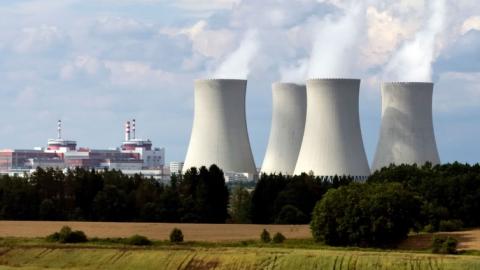
[Disclosure: We own several uranium mining stocks including, Cameco (CCJ), Denison Mining (DNN), Nexgen Energy (NXE), Uranium Energy (UEC), and Energy Fuels (UUUU).]
Amazon announced last night that they will be building small nuclear reactors in an effort to power their AI ambitions. This led to uranium mining stocks exploding higher in trading today.
We have long been bullish on uranium exploration for a host of obvious reasons that the rest of the market is finally warming up to. I don't care what the theme du jour Wall Street has been hawking the past decade, uranium stands to benefit from all of them. Green/clean energy, bitcoin/crypto, AI, EV's, falling USD, Russia's invasion of Ukraine, War in the Middle East, China's economic stimulus, ect., ect. Every single one requires additional domestic energy production and uranium is at the forefront of that theme.
Here are a couple articles we've posted in the past about investing in uranium miners:
https://investorsadv.com/blog/uranium-stocks-potential-explosive-returns
Posted on 12/16/2022
https://investorsadv.com/blog/bill-gates-going-nuclear-and-how-invest-it
Posted on 2/25/2021
At this juncture, the obvious question becomes, is it too late to invest in uranium miners? And I can't answer that as I don't have a crystal ball. My job is not to predict the market but rather to react to it. In time, I'm sure we'll take some profits from our uranium mining positions but for now, we're holding firm. But given our relatively large allocation, I don't see us adding any exposure in the near future either.
In seeking an answer to the question of whether it is too late to buy into the space, here is something to consider. In the world of commodities, there is this idea that "high prices is the cure to high prices." This truism has two components which consist of supply and demand. As prices climb higher, there is more investment attracted to the space which increases supply which causes prices to go down. The other side of the coin is demand which experiences destruction when high prices occur. For example, when oil prices increased considerably in the 1970's, American consumers bought cars that were more fuel-efficient. Commuters started to carpool. Presidents suggested, "We put on a sweater." All of these activities led to less fuel consumption which caused prices to fall. Starting in 1980, prices declined for nearly two decades.
While higher prices in the uranium space may lead to more supply, uranium is quite unique in the commodity world. For obvious reasons, not everyone can just go dig up a uranium mine. For security reasons, the uranium space is highly regulated. Yes, Cameco (CCJ) or Denison Mining (DNN) could add to their current mining activity but I don't expect new companies to enter the space in a meaningful way.
Then there is the demand side of the equation. Again, I believe uranium to be unique in this regard. The price of uranium ends up being a small fraction of the price of creating nuclear energy. The expense is in the structure, and the security, and the disposal. If the price of uranium goes up 10x, the price of creating energy from uranium would hardly increase at all. Further, since most of the cost is in up-front capital outlays, companies are not going to abandon nuclear energy just because the cost of their input went up.
Thus, the fundamental outlook for nuclear energy doesn't change all that much when prices increase. However, due to the multiplier effect, the fundamental outlook for uranium miners does vastly improve as prices increase. So, I would count on miners seeing further gains.
